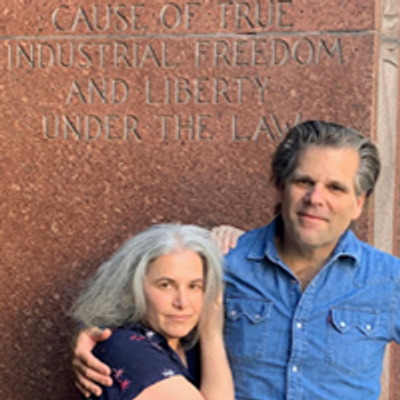
Advertisement
Join Esotouric on a stroll through the National Register Broadway Theatre District, the largest collection of historic motion picture palaces in the country, on an architectural, cultural and public policy history tour of a great street that needs a lot of help. How did Broadway take shape in the early 20th Century, why did the entertainment and retail district decline, and who are the personalities who have sought to preserve, reactivate and profit from it—not always successfully?Special on this edition of the Broadway tour: we’re joined by Miriam and Victoria Caldwell, sharing insights from the 1950s diaries of their mother Vilma, whose adventures as a hard-boiled Clifton's Cafeteria camera girl bring a lost world to life.
Starting from Grand Central Market, we’ll honor the visionary developer Ira Yellin, who believed that there was a second life possible for empty early 20th century office buildings, and changed city law so that Angelenos could live in them.
Across Broadway at the Bradbury Building, Terry McKelvey turned his dad’s dull commercial real estate business into an incubator for creativity, and dreamed of a Victorian-themed Downtown Los Angeles Gaslight District, until his personal demons pulled that dream out from under him.
Down at the United Artists, obtained through a sweetheart deal involving suitcases full of cash and convenient earthquakes, offbeat preacher Dr. Gene Scott raised millions through bizarre televised sermons, for theater restoration, rare books and preservation of the iconic Jesus Saves neon sign.
And up in City Hall, ambitious councilman Jose Huizar saw Broadway as a political branding opportunity, expending civic resources to organize massive street parties with his name on every marquee, while pushing policies that encouraged speculation at the expense of Broadway’s small businesses—until the FBI came calling.
Along the way, we’ll talk about what it means to be National Register District, how the Jewelry District used old buildings in fresh new ways and how the lessons of Wilshire’s Wiltern Theatre could be used to reactivate downtown’s dark venues, while pointing out the sites of lost landmarks, hidden details, ghost signs and magic carpets of terrazzo that make up this beautiful, magical mess at the heart of the city.
On our return to Grand Central Market at the end of the walk, we’ll have a rare opportunity to explore the interior of Sid Grauman’s Million Dollar Theater (1918), the city’s first purpose-built motion picture palace.
This walking tour is illustrated with rare photos you can view on your smartphone.
Advertisement
Event Venue & Nearby Stays
Grand Central Market, Downtown Los Angeles, Sushi Rush, 317 S Broadway, Los Angeles, CA 90013, United States,Los Angeles, California
Tickets










